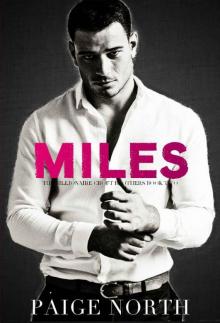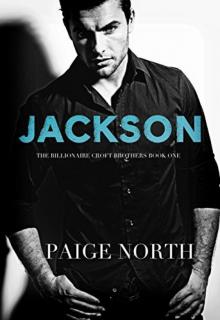- Home
- Paige North
Taking The Virgin (The Virgin Auctions, Book Three) Page 13
Taking The Virgin (The Virgin Auctions, Book Three) Read online
Page 13
Oh god.
The full odor hits me first—the stench of things that are old and dead. Then I see what looks like a garbage dump in the front room—piles of newspapers, magazines, mail, pillows, threadbare clothes, and even what looks to be beer cans. I think there’s furniture beneath it all, but I can only see hints of unclean upholstery and scarred wood.
Sorrow mixes with disgust, and I hope to heaven that they don’t see how horrified I am.
Mrs. Gregory is beside herself. “Come in! Come in!”
Owen’s parents slowly return toward their door, and I catch Owen’s tortured gaze. I nearly sob with sympathy for him and these poor people.
Hoarders. And not just collectors.
The home isn’t just badly cluttered…
Dear god, their home is absolutely filled with junk and debris and even insects and vermin. It’s filthy and dangerous, and this is where Owen grew up.
This is why he has nightmares.
Suddenly, so much about his fanatical crusade against germs and his aversion to uncleanliness makes sense, even while there’s so much he still needs to explain to me.
As his parents go inside, he remains rooted to the faded porch planks. “I’m sure you won’t be surprised to know that I’m not coming in. I’m only here to save you from yourselves, to get you to finally see some common sense. As usual, if you’re not going to listen to me, I have no reason to be here, but I think, this time, you need to listen.”
“What’s important is that we get to know Juliet,” his mom says, looking surprised at Owen’s strictness. “She’s the first girl you’ve ever brought home.”
My throat is burning so badly that I don’t know if I can hide my shock and sadness anymore. This is awful, so damned awful.
Just before I follow them, Owen wraps his fingers around my arm.
I notice he doesn’t grab my hand where his parents made contact with me.
“You don’t have to do this,” he says softly but firmly. “It’s unsanitary in there. Dangerous. I only brought you with me so you’d know why I—”
His words grind into nothing. He’s too busy controlling the emerging panic in his gaze, and I see the little boy in him who grew up here. I see the young man who dedicated his life to helping patients who are neck-deep in the “harmful things” and germs that could debilitate any person. I see why he needs everything to be so clean and perfect, and why his obsession with order has created a stainless steel wall between himself and the world.
Most of all, I see why he wakes up some nights, pushing his hands away from him as if he’s covered in piles of rotting garbage, choking to death as his mouth fills with dirt. To think of an infant living in this, or a young child with stacks of clutter teetering over him, and dead animals rotting nearby as he slept…
“I’ll be back soon,” I say. “I only want to—”
“See how bad it can get?”
“No. That’s not it at all.”
I smile at him, trying to assure him I’ll be okay. Then, as he restrains himself, I venture inside.
I leave the door open with Owen standing nearby, calming down enough to fold his hands behind his back, doing everything he can to not pull me back to what he considers the safety of the outside world.
I don’t go too far into the house—I can’t. Jeez, I just can’t. The stench is hardly hidden by some old air fresheners that his parents seem to be hoarding in a clump near a wall of shoeboxes and a clutter of milk cartons.
Mrs. Gregory comes out of the kitchen, her posture slouched as she carries a gray, steaming mug. A teabag hangs limply out of it. I accept it with another smile.
“Thank you.” Is this really me, staying so composed?
“You’re welcome, sweetheart,” she says, sitting on the one clear spot—the arm of a couch. The rest of the couch is hidden beneath piles of newspapers and cardboard boxes.
Mr. Gregory is already squeezed next to her, leaning on his cane, and he gestures for me to join them.
On the armrest.
“Oh, thanks so much,” I say. “The thing is, Owen and I are just dropping by. But I appreciate your hospitality.”
I look down and notice some roaches scurrying in and out of a pile of trash bags that sit just a few feet from us.
There are small rows that they’ve cleared within the mess, and these narrow aisles allow someone to sidle slowly in between the rotting husks of garbage and junk that fill every other spare inch of the house.
“She’s so sweet,” Mrs. Gregory says.
I glance back at the door, but Owen isn’t standing there anymore. The odors, the sight, the tragedy of all of this mixed together is probably more than he can take. It almost is for me, too, except that I don’t want to make a scene.
His mom sighs, and in that moment, I know that their politeness is only a cover for something else. They know exactly what’s going on with themselves—they know they should look younger, should be healthier, but somehow the hoarding got out of hand and claimed them like the creeping disease it is.
“Owen’s gone, isn’t he,” Mrs. Gregory says softly.
“Yes,” I say. “But I know he still wants to talk to you.”
“I’m sure he does.” She adjusts her broken glasses. “He tries with us. He really does. But he doesn’t understand that most of our collections will be worth a fortune someday. He’ll never have to pay us a penny to support us.”
Whoa, maybe they don’t have any idea of what’s really happening here. “I’m sure he would gladly give you anything you needed.”
Mr. Gregory chuffs in much the same way I’ve heard Owen do on occasion. “We don’t need his money. Like Mrs. Gregory said, we’re sitting on a fortune, and that doesn’t even count everything here that has sentimental value.”
I glance at the junk mail around me, the things that probably couldn’t even be sold at a yard sale for a total of a dollar.
Surreal. This is a disorder, and it must kill Owen that, as a doctor, he can’t do a thing for his own parents. Are they delusional? Or do they know something is very wrong here?
Mrs. Gregory picks up an old cereal box from next to her. “Look at this, for instance—there’s points on the box top so we can collect prizes someday.”
“We’ve got a million of them,” says Mr. Gregory.
The smell is really getting to me, and I don’t know how long I can stay, but I smile at them again. “I understand, but can you see how Owen might be concerned about this?”
“Oh,” says Mrs. Gregory, “he’s always on us about cleaning up. His three brothers aren’t nearly as pushy, but they’re all such neat freaks.”
“Three brothers,” I repeat, because, until today, I had no idea he had any.
She shrugs. “Owen rarely sees or speaks to them. Liam told us that seeing them makes Owen remember the way he grew up here, and he hates dwelling on that. As I said, all of them try to stay away because they’re rather finicky.”
Either they’re refusing to admit that Owen could’ve been traumatized or they don’t really get it.
At any rate, it seems as if Owen’s parents don’t have many people who’ll just stand here and listen to them, so I try my best to endure the stench. I won’t drink the tea, but I’ll listen.
Mr. Gregory continues. “He’s tried a few times to help us rid this house of all the so-called junk and, as he says, make it safe to live in. We allowed him to have at it one time.”
“He brought in a cleaning team and a therapist who told us we couldn’t hang on to everything they were taking,” Mrs. Gregory says. “But after it all was said and done, that only meant we had to replace what they took.”
Replace?
Oh man. So Owen has done more than merely try to talk sense into them. I don’t doubt that he would’ve been so insistent, but how many tries did it take before his parents finally gave in that one time?
I’m sure he’s frustrated, angry, and probably fed up if all this garbage piled up all over again.
As his parents start talking about things in their “collection,” I stay longer than I intended to, and I’m more patient than I ever thought I could be with anyone. I really try to talk to them and, more importantly, listen some more (all while trying my best to hold my breath and not inhale through my nose). But all I can withstand is another ten minutes in there, and I excuse myself, saying that I need to see where Owen went.
They’re perfectly sweet as they say they’ll wait for me.
When I walk outside, I feel as if my clothing and hair have absorbed the terrible smell, and when I spot Owen at the front of the yard, staring at the trunk of an oak tree, I go to him, hoping the fresh air will make me feel better.
His suit jacket is gone, as if he tossed it somewhere because it caught a case of germs, and I see that he’s staring at a carving in the tree. OWEN, it says. He must’ve written it there one day when he was young, after he escaped from what was inside that house.
“They might be willing to listen to you now,” I say. “Maybe—”
“No. They’re a lost cause, Juliet. That’s why I brought you here, so you wouldn’t ask me about it anymore. Now we’re leaving.”
Chapter 21
“Owen,” I say in disbelief. “You can’t possibly mean that.”
His words are serrated. “Did they specifically tell you why I’m so goddamned angry with them and why I bothered to come out here today?”
“No, but we talked about—”
“Juliet, this morning I got a call from my brother Liam, whom I never speak to except for the occasional emergency with my parents. He routinely talks to the neighbors, and he gets just as frustrated with my parents as I do. He has the joy of hearing the neighborhood gossip because he’s lives closer by than me, whereas I got the fuck out all together.”
I don’t tell Owen that his parents have already informed me about his relationship with his siblings, how none of them like to see one another because of the hell in that house.
Owen continues, his tone getting more ragged with every sentence. “Today Liam informed me that he found out this house is about to be condemned by the city. Oh, and the best part? My parents have just a couple more days to clean this whole damned thing out or they’ll be kicked out, evicted, and essentially homeless.”
I cross my arms over my chest, holding myself.
He fists a hand as he raises it, almost as if he wants to beat down whatever it is that keeps his parents from understanding how serious the situation is. Then he lowers his fist.
“Do you know the definition of insanity? It’s doing the same thing over and over again and expecting different results. Believe me, I’ve tried and tried to help them over the years, and things never change. You heard them—they don’t think a damned thing is wrong.”
“They have a disorder…”
“I know that, and after their house was cleaned the first time, they weren’t willing to seek help. They felt betrayed that ‘all their stuff was taken.’ I’ve tried to get them into regular therapy, but I can’t force it on them.” It looks as if he’s about to slam his fist into the tree, but he pulls back and shakes his head. “I don’t see them much, but I check on them out of a sense of obligation, and I’m sick of bashing my head against the wall. I can’t do it anymore.”
What he’s obviously not saying is that he’s also sick of being tortured by his past memories of having to live here, plus the trauma from growing up in this environment. And I understand. I really do.
“Owen,” I say softly, “We can’t just leave them here to rot.”
I think of my own parents. What I’d give right now to have even the slimmest chance to save them from their ultimate fate.
But Owen is furious. “No. Fuck that. Did you smell it in there? That’s the stench of my childhood—garbage, pests, rodents, dead animal carcasses, and all manner of nastiness piled under the junk and garbage my parents would collect over the years. When I was finally old enough to exert some influence, they finally agreed to have things cleaned up, but they only went back to their old habits, and now look at the place. It’s just as disgusting and cluttered as ever.”
And here he stands before me—the rigidly fanatical man who went in the opposite direction, keeping his life neat and tidy in every way. The one who chose to have no emotional clutter either—no serious romantic entanglements or even close friends.
Just a perfect, sanitary barricade that blocks him from his terrible memories here.
“Please just listen to me. We have to at least try.” I reach for him.
But he steps away. I don’t know if it’s because I’ve been in that house and shook his parents’ hands so that makes me contaminated now, or if it’s because I’m not as sick and tired of this situation as he is. Either way, his rebuff stings.
“Why in the world would I expect you to get it?” he asks in a chilled rage.
I tense up. “But I do.”
“Really?”
He’s wearing that acrid smile again. Something has snapped in him because I’m defending his parents, as if I’m keeping the cycle going—which I’m not trying to do.
“You came into my life and disturbed everything I’ve built,” he grates. “You’ve sent everything into chaos. I hired you specifically so that none of this would happen, but you’ve failed completely at the task you were paid to do.”
I shake my head. He’s going way too far in his anger. He’s blaming me for all his frustrations because he has no other option.
And he isn’t done—seeing his home again, seeing his parents, has possessed him.
“Instead of doing your job,” he says, “you’re in my business, trying to engulf me in your crazy life and that of my parents’. All I wanted was for you to observe today so you’d understand why I have rules and regulations, not for you to try to pull me into an impossible situation again.”
I’m utterly speechless in the face of this wounded animal. I’m crushed by everything he’s saying to push me away, because that’s what he does—push and push and wall himself up until nothing and no one can get to him.
A moment saws by, biting through the air. He curses under his breath, then says, “I’m done dealing with all of this.”
He starts walking away, but I’m not about to let him escape that easily.
I know that this is only his awful past gripping him. I’ll help him find a way out of it. I’ve done it before.
“Where are you going?” I ask with a hitch in my voice.
“Back to New York.” He’s talking over his shoulder. “You can come back with me and forget everything you saw here, because if you don’t, it’ll only drive you off the deep end, too. You can do the job I hired you to do for the rest of the month with me, or…”
“Or what?”
My voice is thick, because I can’t believe he’s giving me this ultimatum. It’s true that I haven’t experienced the horrors he has in this house and I have no idea what it’s like to try and help his parents over and over again, but I can’t just leave them alone.
It feels like a betrayal. They’re not bad people, just sick. And this house and the clutter can be managed, can be sorted out with a lot of patience. I’m not the type of person who turns their back on those in need.
This house, and the real people suffering in it, reminds me of my own home. My own family. I refuse to let it fall apart without so much as an hour of effort to help.
As he stops at the car, he sees that I haven’t moved an inch, and something clouds in his eyes. It’s almost as if he hates himself because this is the only way he’ll keep his sanity. But then the anger returns.
“If you stay here for even another second,” he says coldly, “I don’t ever want to see you again.”
I can’t believe this is happening, that he could be so callous.
I can’t find the words.
Finally he just shakes his head.
We stare at each other, and there’s a moment that I think he’ll relent, just as he always do
es with me.
He grits his jaw and slams his way into the car. I let him do it.
Then I let him burn rubber down the road, leaving me to fend for myself, suddenly realizing that I have no idea what to do with his parents.
Or all the agonizing debris that’s falling down around me, too.
As I stand in that yard a few more minutes thinking that maybe he’ll cool off and turn back around to pick me up, I gradually feel the emotional wounds opening up in me.
He’s gotten angry with me before, but this time it feels different. I just saw his nightmare come to life in that house, and I walked in there with a fresh Sunshine Day point of view and basically told him that everything he’s feeling, all of his bad dreams, are easy to clean up.
I crossed a line, and I’m not sure there’s any coming back from it.
But maybe he will return for me…
After I wait a little longer, I finally realize that things between us might really be over. But I can’t walk away from these people who are in such need. I know all too well what it feels like to be left to sink or swim on my own. I have to try to repair this damage, even slightly.
Even though my heart feels as if it’s just been wrenched apart and left in broken pieces all over the place, I go back into that house, nearly choking on the smell again.
I haven’t cried yet, but I nearly start when I see his parents sitting there with smiles on their faces, happy to see that I’ve come back when most people they meet probably never do.
I don’t sit down. I stay standing as I tell myself that I’ll cry over Owen later.
Mr. Gregory heavily leans on his cane, suddenly looking downtrodden, as if he hoped to see Owen with me, but now knows that his son has left for good.
Mrs. Gregory looks almost as crushed as I feel, as if she also thought that, maybe this time, Owen would get over all the trauma they’ve caused and he would decide to stay.
I swallow back my throttling grief. I’ve got to be their rock—my own rock.
“He wants to help,” I tell them. “But from what I’m seeing, you won’t accept what he has to offer, and that’s killing him. He can’t watch you live like this.”

 Bought And Paid For (Part Three)
Bought And Paid For (Part Three) Filthy Liar
Filthy Liar The Billionaire And The Nanny (Book Two)
The Billionaire And The Nanny (Book Two)![Dirty Nasty Billionaire [Part Three] Read online](http://i1.bookreadfree.com/i/03/18/dirty_nasty_billionaire_part_three_preview.jpg) Dirty Nasty Billionaire [Part Three]
Dirty Nasty Billionaire [Part Three]![Dirty Nasty Billionaire [Part Four] Read online](http://i1.bookreadfree.com/i/03/21/dirty_nasty_billionaire_part_four_preview.jpg) Dirty Nasty Billionaire [Part Four]
Dirty Nasty Billionaire [Part Four] Owning The Virgin (The Virgin Auctions, Book Two)
Owning The Virgin (The Virgin Auctions, Book Two) Secret Baby Daddy
Secret Baby Daddy![The Billionaire's Secret Baby [Part One] Read online](http://i1.bookreadfree.com/i/03/24/the_billionaires_secret_baby_part_one_preview.jpg) The Billionaire's Secret Baby [Part One]
The Billionaire's Secret Baby [Part One] Rock Hard
Rock Hard Secret Baby Daddy (Part Three)
Secret Baby Daddy (Part Three) MILES (The Billionaire Croft Brothers, Book Two)
MILES (The Billionaire Croft Brothers, Book Two) The Bad Boy's Secret Baby (Part One)
The Bad Boy's Secret Baby (Part One) The Billionaire And The Nanny
The Billionaire And The Nanny![Dirty Nasty Billionaire [Part One] Read online](http://i1.bookreadfree.com/i1/03/30/dirty_nasty_billionaire_part_one_preview.jpg) Dirty Nasty Billionaire [Part One]
Dirty Nasty Billionaire [Part One] Hard Stick
Hard Stick![Dirty Rotten Billionaire [Part One] Read online](http://i1.bookreadfree.com/i1/04/02/dirty_rotten_billionaire_part_one_preview.jpg) Dirty Rotten Billionaire [Part One]
Dirty Rotten Billionaire [Part One] Return of the Bad Boy
Return of the Bad Boy Buying The Virgin (The Virgin Auctions, Book One)
Buying The Virgin (The Virgin Auctions, Book One) Taking The Virgin (The Virgin Auctions, Book Three)
Taking The Virgin (The Virgin Auctions, Book Three) REX (The Billionaire Croft Brothers, Book Three)
REX (The Billionaire Croft Brothers, Book Three) Secret Baby Daddy (Part Four)
Secret Baby Daddy (Part Four) Secret Baby Daddy (Part Five)
Secret Baby Daddy (Part Five) The Billionaire And The Nanny (Book One)
The Billionaire And The Nanny (Book One) The Billionaire And The Nanny (Book Four)
The Billionaire And The Nanny (Book Four) Secret Baby Daddy (Part Two)
Secret Baby Daddy (Part Two) Filthy Rage (Second Chance With My Brother's Best Friend, Book Five)
Filthy Rage (Second Chance With My Brother's Best Friend, Book Five) Panty Dropper (A Sexy Standalone Contemporary Romance)
Panty Dropper (A Sexy Standalone Contemporary Romance) Secret Baby Daddy (Part One)
Secret Baby Daddy (Part One) JACKSON (The Billionaire Croft Brothers, Book One)
JACKSON (The Billionaire Croft Brothers, Book One)![Dirty Filthy Billionaire [Part One] Read online](http://i1.bookreadfree.com/i2/04/10/dirty_filthy_billionaire_part_one_preview.jpg) Dirty Filthy Billionaire [Part One]
Dirty Filthy Billionaire [Part One]![Dirty Nasty Billionaire [Part Two] Read online](http://i1.bookreadfree.com/i2/04/11/dirty_nasty_billionaire_part_two_preview.jpg) Dirty Nasty Billionaire [Part Two]
Dirty Nasty Billionaire [Part Two] Keeping The Virgin (The Virgin Auctions, Book Four)
Keeping The Virgin (The Virgin Auctions, Book Four)